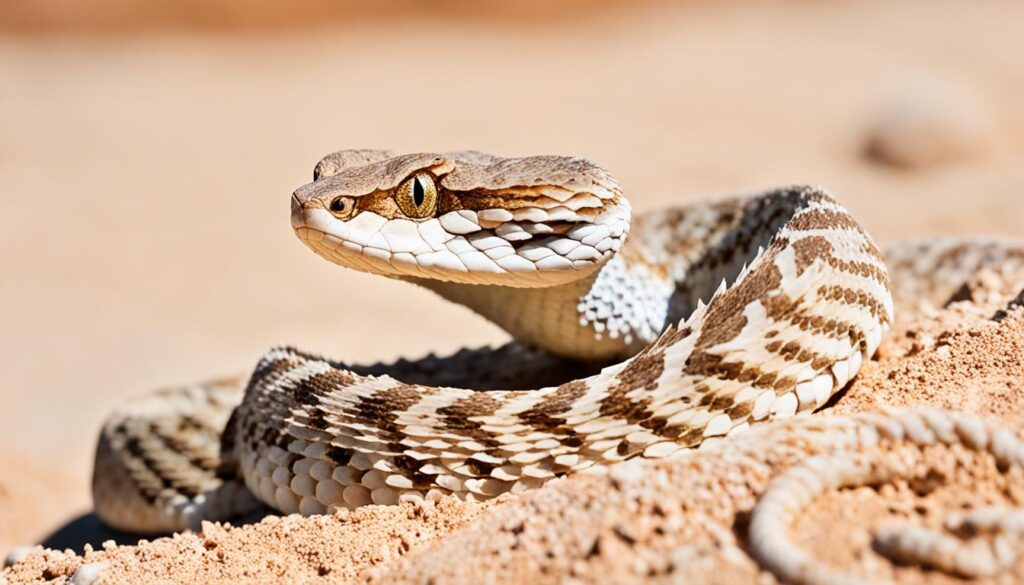Animal Facts
Signs Your Betta Fish Is Happy & Healthy | Pet Care Tips

Did you know that betta fish, also known as Siamese fighting fish, have an amazing ability to recognize their owners? These stunning freshwater fish native to Southeast Asia are famous for their bright colors and spirited personalities. But how can you make sure that your betta fish is happy and healthy? In this article, we will discuss different signs that show a happy betta fish and offer you important pet care tips to keep your aquatic friend thriving.
Key Takeaways:
- Recognize signs of a happy betta fish, such as vibrant colors, active behavior, and flaring fins.
- Ensure proper betta fish care by providing a suitable habitat with the right aquarium size and setup.
- Maintain optimal water quality through consistent temperature, pH levels, and filtration.
- Feed your betta fish high-quality food in appropriate portions to prevent overfeeding.
- Be vigilant for warning signs of potential health issues and promptly address any concerns.
Betta Fish Supplies
Before bringing home a betta fish, it’s essential to have the necessary supplies to provide them with proper care. We have compiled a list of essential betta fish supplies that will help you create a suitable environment for your fish.
- Aquarium: Choose an aquarium of at least 5 gallons or more to ensure your betta fish has enough space to swim and thrive.
- Filter: Install a filter in your aquarium to maintain water cleanliness and remove harmful toxins that can affect your betta fish’s health.
- Heater: Maintain a stable water temperature between 75-80 degrees Fahrenheit, as betta fish are tropical and require warm water to thrive.
- Decorations: Add decorations such as caves, rocks, or driftwood to provide hiding spots for your betta fish and simulate their natural habitat.
- Water Conditioner: Use a water conditioner to remove chlorine, chloramine, and heavy metals from tap water before adding it to the aquarium.
- Water Quality Test Strips: Regularly test the water parameters, including pH, ammonia, nitrite, and nitrate levels, to ensure optimal water quality for your betta fish.
- Betta Fish Food: Purchase high-quality betta fish food, such as pellets or flakes, to provide a balanced diet for your fish.
- LED Light (optional): Consider adding an LED light to enhance the visual appeal of your aquarium and provide additional lighting if needed.
- Aquarium Plants (optional): Live or artificial aquarium plants can create a natural and aesthetically pleasing environment for your betta fish.
- Substrate: Choose a suitable substrate for the bottom of the aquarium, such as gravel or sand, to create a comfortable surface for your betta fish.
Setting up the aquarium and ensuring proper water quality are crucial for the well-being of your betta fish. Remember to provide a clean and well-maintained habitat to promote a happy and healthy life for your betta fish.
“Having the right supplies is the first step towards creating a thriving aquarium for your betta fish.”

| Essential Betta Fish Supplies | Description |
|---|---|
| Aquarium | Provide a spacious environment for your betta fish to swim and thrive. |
| Filter | Maintain water cleanliness and remove toxins to ensure a healthy habitat. |
| Heater | Maintain a stable temperature between 75-80 degrees Fahrenheit for tropical betta fish. |
| Decorations | Add hiding spots and simulate a natural habitat for your betta fish. |
| Water Conditioner | Remove harmful chemicals from tap water before adding it to the aquarium. |
| Water Quality Test Strips | Regularly monitor water parameters to ensure optimal water quality for your fish. |
| Betta Fish Food | Provide a balanced diet with high-quality pellets or flakes. |
| LED Light (optional) | Enhance the visual appeal of the aquarium and provide additional lighting if needed. |
| Aquarium Plants (optional) | Create a natural and aesthetically pleasing environment for your betta fish. |
| Substrate | Choose a comfortable material for the bottom of the aquarium. |
Betta Fish Aquarium Size and Setup
It is important to provide a suitable aquarium for your beloved betta fish to ensure their well-being and longevity. Betta fish require a minimum tank size of 5 gallons to thrive, as it allows them to have enough space to swim and explore their environment. A spacious habitat is essential for their mental and physical health.
When setting up the aquarium, there are a few factors to consider to create a comfortable and safe betta fish habitat. First, it’s crucial to choose appropriate decorations that won’t harm your fish. Avoid sharp objects, as they can damage their delicate fins. Additionally, steer clear of metal items that can rust and painted ornaments that may contain harmful substances. These precautions will prevent any potential harm to your betta fish.
Betta fish are highly sensitive to changes in water parameters, so it’s important to maintain a stable pH level. Avoid adding substances such as limestone or seashells that can alter the pH of the water. Opt for decorations and substrate that are specifically designed for aquarium use to ensure a safe and suitable environment for your betta fish.

Creating a comfortable and visually appealing environment for your betta fish is essential. You can add live or silk plants to mimic their natural habitat and provide hiding spots. These plants not only enhance the aesthetic of the aquarium but also offer places for your betta fish to rest and explore.
Remember, a well-thought-out aquarium setup plays a crucial role in the overall health and happiness of your betta fish. By considering their habitat needs and providing a suitable environment, you can ensure that your betta fish thrives in their new home.
Betta Fish Water Quality
Proper water quality is crucial for the overall health and well-being of betta fish. Maintaining optimal conditions in the aquarium ensures that your fish can thrive and live a long, happy life. Here are some essential factors to consider when it comes to betta fish water quality:
Water Temperature
One of the key elements to monitor is the water temperature. Betta fish are tropical fish and prefer warm water. The ideal temperature range for betta fish is between 75-80 degrees Fahrenheit. Maintaining a stable and appropriate water temperature is essential for their metabolic functions and overall health.

pH Levels
The pH level of the water is another critical factor to consider. Betta fish thrive in slightly acidic water with a pH level between 6.5 and 7.5. Fluctuations in pH can stress and harm your fish, so it’s important to regularly test the water and adjust pH levels if necessary. Use a pH test kit to monitor and maintain the best pH range for your betta fish.
Nitrite and Nitrate Levels
Monitoring nitrite and nitrate levels in the aquarium is crucial. These compounds are produced as a result of the breakdown of organic waste in the water. Accumulation of nitrite and nitrate can be toxic to betta fish, causing stress and health problems. Performing regular water tests and maintaining low levels of nitrite and nitrate is essential for betta fish health.
Water Conditioners
Using water conditioners is necessary to ensure betta fish water quality. Tap water often contains chlorine, chloramine, and heavy metals that can harm your fish. Water conditioners help to remove these harmful substances, making the water safe and suitable for betta fish. They also contain beneficial additives that help maintain the necessary minerals and nutrients for the fish.
In summary, maintaining proper water quality is vital for the health and well-being of betta fish. By monitoring and regulating water temperature, pH levels, and nitrite and nitrate concentrations, you can provide a suitable environment for your fish to thrive. Regular testing and the use of water conditioners will help you maintain the optimal water quality that betta fish require.
Betta Fish Filters
Including a filtration system in your betta fish tank is crucial for maintaining water cleanliness and ensuring a healthy environment for your fish. A filtration system helps remove harmful toxins and debris, creating a safe and comfortable habitat for your betta. When selecting a filter, it’s important to consider factors such as the aquarium size, filtration output rate, and compatibility with other tank mates and plants.
Betta fish are known for their preference for low water movement, so it’s essential to choose a filter that allows them to control the flow rate and prevent excessive currents. This helps replicate their natural habitat and reduces stress. When setting up the filtration system, aim for gentle water movement that mimics calm waters, providing a soothing and comfortable environment for your betta fish.
Here are key considerations when choosing a betta fish filter:
- Aquarium size: Select a filter appropriate for your tank size. Smaller tanks may require compact or adjustable filters, while larger tanks can accommodate more robust filtration systems.
- Filtration output rate: Ensure the filter’s flow rate is suitable for the size and needs of your betta fish. Opt for filters with adjustable flow settings to provide optimal water movement.
- Compatibility: Some filters may be incompatible with certain tank mates or plants. Research and choose a filter that won’t harm or stress your betta fish or other inhabitants.
By investing in a reliable filtration system, you can maintain clean, clear water that promotes the health and well-being of your betta fish.
Betta Fish Nutrition
Providing proper nutrition is essential for the well-being of your betta fish. To ensure your fish receives the necessary nutrients, it is important to choose high-quality betta fish food. Opt for pellets or flakes made from whole fish meal, shrimp meal, and other nutritious ingredients.
Feeding your betta fish once or twice a day is sufficient. It’s important to offer them only what they can consume within two minutes. Overfeeding can lead to health issues such as obesity and poor water quality. Maintaining a balanced feeding schedule is crucial for the overall health of your betta fish.
Feeding Guidelines
Here are some guidelines to follow when it comes to feeding your betta fish:
- Choose a high-quality betta fish food that meets their nutritional needs.
- Feed your betta fish once or twice a day.
- Offer an amount of food that can be consumed within two minutes.
- Remove any uneaten food to maintain water cleanliness.
Betta Fish Feeding Schedule
Creating a consistent feeding schedule is beneficial for your betta fish. The table below provides an example of a feeding schedule:
| Day | Morning | Evening |
|---|---|---|
| Monday | Pellets | Pellets |
| Tuesday | Flakes | Flakes |
| Wednesday | Pellets | Pellets |
| Thursday | Flakes | Flakes |
| Friday | Pellets | Pellets |
| Saturday | Fast | Fast |
| Sunday | Pellets | Pellets |
Remember, it’s important to observe your betta fish and adjust the feeding schedule based on their individual needs. Additionally, ensure the water quality in your tank remains optimal by performing regular water changes and keeping the tank clean.
Betta Fish Health Warning Signs
Recognizing warning signs of potential health issues in betta fish is crucial for their overall well-being. By being vigilant and observant, you can identify early indications of common diseases or health problems and take appropriate action. Here are some common warning signs to watch out for:
- Loss of appetite: If your betta fish suddenly shows a lack of interest in food, it could be a sign of an underlying health issue.
- Lethargy: If your betta fish becomes unusually inactive and spends most of its time resting, it may be a sign of illness.
- Clumped or deteriorating fins: Fins that appear clumped together, torn, or ragged may indicate fin rot or another type of infection.
- Changes in color: Noticeable changes in the vibrant colors of your betta fish may indicate stress or the presence of a disease.
- Open sores: The appearance of open sores or lesions on your betta fish’s body may be a sign of infection or injury.
- Swollen or protruding eyes: Abnormally swollen or bulging eyes can indicate an infection or other health problem.
- Raised scales: Scales that appear raised or protruding are often a sign of dropsy, a serious condition that affects the fish’s internal organs.
- Abnormal belly appearance: A swollen or distended belly may indicate underlying health issues, such as bloating or an internal infection.
If you notice any of these warning signs in your betta fish, it’s important to take immediate action. Isolate the affected fish and consult a veterinarian or a knowledgeable pet store aquarium specialist for guidance on appropriate treatment. Acting promptly can help prevent the spread of diseases and increase the chances of a successful recovery.
Stay vigilant and keep a close eye on the health of your betta fish to ensure their well-being.
Betta Fish Health Tips
In addition to being aware of warning signs, here are some tips to promote betta fish health:
- Provide a clean and properly maintained aquarium with optimal water quality.
- Ensure your betta fish has a balanced and nutritious diet.
- Maintain an appropriate water temperature and pH level for your betta fish.
- Regularly check and maintain the cleanliness of the tank and its equipment.
- Avoid overcrowding and choose suitable tank mates for your betta fish.
By following these guidelines and being proactive in caring for your betta fish, you can help them live a long, healthy, and fulfilling life.
Common Diseases in Betta Fish
Betta fish, like any living creature, can be susceptible to various diseases. It’s important for us as responsible betta fish owners to be aware of these common illnesses and their symptoms. In this section, we will discuss some of the most prevalent diseases in betta fish and explore their symptoms and treatment options.
Fungal Infection
Fungal infections are a common ailment that betta fish can experience. These infections are typically caused by water that is contaminated with fungus spores or poor water quality. Symptoms of a fungal infection in betta fish include white or gray patches on the body or fins, lethargy, and loss of appetite. To treat a fungal infection, it’s important to quarantine the infected fish and consult a veterinarian or pet store aquarium specialist for appropriate antifungal medications.
Fin Rot
Fin rot is another prevalent disease among betta fish. It is characterized by the deterioration of the fins, which may appear ragged or discolored. Causes of fin rot can include poor water quality, stress, or bacterial infections. If you notice signs of fin rot in your betta fish, it’s crucial to take immediate action. Start by improving water conditions through regular water changes and maintaining optimal water quality. In severe cases, antibiotic medications may be necessary to treat the infection.
Ick
Ick, also known as white spot disease, is caused by a parasite called Ichthyophthirius multifiliis. It presents as small white spots on the fish’s body or fins, resembling grains of salt. Common symptoms of ick include restlessness, scratching against objects, and loss of appetite. To treat ick, it’s essential to raise the water temperature gradually to around 80-82 degrees Fahrenheit. Medications such as copper-based treatments can also be used to eliminate the parasites. Consult a veterinarian or pet store aquarium specialist for the most effective treatment options.
Velvet
Velvet, or Oodinium, is another parasite-related disease that betta fish can be susceptible to. It usually manifests as a yellowish-gold dust-like substance on the fish’s body, fins, and gills. Affected fish may also display symptoms such as increased mucus production, clamped fins, and rapid breathing. To treat velvet, it is important to increase the water temperature, perform regular water changes, and use medication specifically designed to eliminate the parasite. Seek professional advice from a veterinarian or pet store aquarium specialist for appropriate treatment options.
Dropsy
Dropsy is a serious condition that affects the betta fish’s internal organs, causing fluid retention and swelling of the abdomen. Common symptoms of dropsy include swollen body, raised scales, loss of appetite, lethargy, and difficulty swimming. Unfortunately, dropsy can be difficult to treat, and the prognosis is often poor. Prompt action is essential. Consult a veterinarian or pet store aquarium specialist for guidance on potential treatment options, as they may recommend medicated baths or other specialized care.
Remember, early detection and treatment are crucial when it comes to combating common diseases in betta fish. By understanding the symptoms and seeking appropriate care, we can help our beloved betta fish overcome these illnesses and maintain their vibrant and healthy lives.

Betta Fish Tank Mates
While male bettas should be housed individually due to their aggressive nature, female bettas can coexist with other community fish or other female bettas in a suitable tank setup. It’s important to provide ample space, hiding places, and carefully select appropriate tank mates to avoid aggression and territorial issues. Tank mates such as apple/mystery snails, ghost shrimp, nerite snails, and certain species of catfish can be compatible with betta fish.
| Tank Mate | Compatibility |
|---|---|
| Apple/Mystery Snails | Compatible, peaceful tank cleaners |
| Ghost Shrimp | Compatible, adds activity to the tank |
| Nerite Snails | Compatible, effective algae eaters |
| Certain species of Catfish (e.g., Corydoras) | Compatible, bottom-dwelling tank cleaners |
Disclaimer: It’s important to note that each betta fish has its own personality and may react differently to tank mates. It’s recommended to closely monitor the behavior of your betta fish when introducing new tank mates and be prepared to separate them if any signs of aggression occur.
By selecting suitable companions for your betta fish, you can create a harmonious community tank that provides enrichment and visual appeal. Remember to research the specific care requirements of each tank mate before introducing them to ensure a healthy and thriving aquatic environment.
Cleaning and Maintenance
Regular cleaning and maintenance are essential for the health of your betta fish and the overall condition of the aquarium. By following a few simple steps, you can ensure a clean and thriving environment for your betta fish.
Perform Regular Water Changes
Water changes are an important part of aquarium maintenance. By replacing a portion of the water in your betta fish tank every two to four weeks, you can remove built-up waste and maintain optimal water quality. When performing water changes, make sure to:
- Use a water conditioner to remove chlorine and chloramine from tap water before adding it to the tank.
- Match the temperature of the new water to the current tank water to avoid temperature shocks to your betta fish.
- Monitor the pH levels of the tank to ensure consistency.
Clean the Aquarium, Decorations, and Filter
To prevent the buildup of algae and maintain a clean environment for your betta fish, it’s important to clean the aquarium, decorations, and filter regularly. Here’s what you need to do:
- Use an aquarium-safe algae scraper or sponge to remove any algae growth on the walls of the tank. Avoid using harsh chemicals or abrasive materials that can harm your betta fish.
- Remove any debris or uneaten food from the tank using a fish net or siphon.
- Gently clean the decorations by rinsing them with warm water. Avoid using soap or detergents that can be harmful to your fish.
- Check the filter regularly and follow the manufacturer’s instructions for cleaning and maintenance. A clean filter helps to maintain proper water circulation and filtration.
Maintain a Cleaning Schedule
Creating a cleaning schedule will help you stay organized and ensure that you don’t neglect important maintenance tasks. Set reminders on your calendar or phone to perform routine water changes, clean the aquarium, and check the filter. By sticking to a regular cleaning schedule, you’ll be able to provide the best care for your betta fish.
Regular cleaning and maintenance are key to a happy and healthy betta fish. By performing water changes, cleaning the aquarium and decorations, and maintaining a consistent cleaning schedule, you’ll create an optimal environment for your betta fish to thrive.
Conclusion
Ensuring the happiness and well-being of your betta fish requires proper care and attention. By providing the right environment, nutrition, and monitoring their health, you can keep your betta fish healthy and vibrant. Follow the pet care tips discussed in this article to create a thriving and joyful home for your betta fish.FAQ
What supplies do I need for my betta fish?
What is the minimum size of an aquarium for betta fish?
How do I ensure proper water quality for my betta fish?
Are filters necessary for betta fish tanks?
What should I feed my betta fish?
What are the warning signs of potential health issues in betta fish?
What are the common diseases in betta fish?
Can betta fish coexist with other fish?
How often should I clean my betta fish tank?
Dana is our Lead Content Writer, bringing a wealth of knowledge and expertise to our team. With a background deeply rooted in animal studies and a profound love for all creatures, Dana is dedicated to crafting engaging and informative content that resonates with our audience. With Dana at the helm, you can trust that our content is accurate and engaging, catering to the diverse interests of animal enthusiasts everywhere.
Animal Facts
Discover Animals in Cuba: A Biodiversity Tour

Were you aware that Cuba has more than 6,000 known animal species? From colorful birds to mysterious reptiles, this Caribbean island has an impressive level of biodiversity that competes with some of the most famous wildlife destinations worldwide. Discovering the animal kingdom in Cuba is not only an exciting experience; it’s a chance to observe the marvels of nature firsthand.
Key Takeaways:
- Cuba is home to over 6,000 known animal species, making it a biodiversity hotspot.
- Exploring the wildlife in Cuba offers a unique opportunity to witness the wonders of nature.
- Birdwatching, sea turtle nesting, and marine life observation are popular activities in Cuba.
- Cuba’s commitment to environmental conservation ensures the preservation of its pristine landscapes.
- Joining a nature tour in Cuba allows travelers to immerse themselves in the rich natural beauty of the country.
The Pristine Landscapes of Cuba
Cuba is renowned for its pristine landscapes, which encompass a variety of ecosystems ranging from lush rainforests to breathtaking coastal areas. These untouched natural habitats provide a safe haven for a diverse array of wildlife, making Cuba an oasis for nature enthusiasts.
One of the most extraordinary examples of Cuba’s pristine landscapes is the Zapata Peninsula. This UNESCO Biosphere Reserve is a treasure trove of biodiversity, boasting an abundance of bird species, amphibians, and reptiles. As you explore this remarkable peninsula, you’ll be in awe of the thriving wildlife that calls it home.
In addition to the Zapata Peninsula, Cuba offers numerous other protected areas and national parks where you can immerse yourself in the untouched beauty of the island. From the Sierra Maestra mountains to the idyllic beaches of Cayo Coco, each destination brings its own unique charm and pristine landscape.
“Cuba’s pristine landscapes are a testament to the country’s commitment to environmental conservation. By preserving these natural habitats, Cuba offers a unique opportunity for visitors to experience the beauty of wildlife in its purest form.”
Threats to Cuba’s Biodiversity
Despite the richness of Cuba’s biodiversity, economic development poses a significant threat to its unique species. The expansion of industries, urbanization, and deforestation are some of the factors contributing to habitat loss and degradation. As Cuba opens up to the world, there is a critical need to study and conserve its wildlife to prevent further damage to its delicate ecosystems.
Collaborative international research has historically been restricted, limiting the understanding of Cuba’s biodiversity and hindering conservation efforts. However, with increasing global cooperation, there is hope for improved knowledge and conservation practices.
In recent years, researchers and conservation organizations have started recruiting citizen scientists to monitor and document the wildlife in protected areas across Cuba. This approach not only engages the local community but also provides crucial information on the distribution and abundance of species. By actively involving volunteers in data collection, scientists can gather valuable insights to guide conservation efforts effectively.
“The active participation of citizen scientists is invaluable for understanding the threats facing Cuba’s biodiversity and developing proactive conservation strategies,” says Dr. Maria Gomez, a wildlife biologist specializing in Cuban ecosystems.
Conserving Cuba’s biodiversity requires a comprehensive approach that takes into account the unique challenges faced by the country. By studying endangered species, mapping critical habitats, and implementing sustainable practices, researchers and conservationists strive to protect Cuba’s natural heritage for future generations.
While economic development continues to pose threats, increasing awareness and collaboration are essential for preserving Cuba’s diverse wildlife and ensuring a sustainable future.
Threats to Cuba’s Biodiversity:
- Habitat loss and degradation due to expanding industries and urbanization
- Deforestation for agriculture and logging
- Pollution from industrial and human activities
- Climate change and its impacts on ecosystems
- Illegal wildlife trafficking

Wildlife Conservation Efforts in Cuba
Cuba is dedicated to the preservation of its unique wildlife and the conservation of its habitats. Through ongoing research and volunteer efforts, wildlife conservation initiatives are working towards understanding and protecting the diverse species found in Cuba.
One of the primary focuses of wildlife conservation in Cuba is the study of primary pollinators and seed dispersers, such as birds and bats. Scientists are conducting research to better comprehend their vital role in maintaining ecosystem health. By studying their behavior, migration patterns, and population dynamics, these experts can develop effective strategies for preserving both the species and their habitats.
Volunteers play a crucial role in wildlife conservation efforts by assisting with bird and bat population monitoring and documenting endemic and migratory species. Their efforts provide valuable data that helps inform management plans and conservation strategies. By actively engaging citizens in wildlife monitoring and documentation, Cuba is creating a sense of responsibility and ownership among its people, leading to increased awareness and support for conservation efforts.
Overall, the collaborative efforts of scientists and volunteers are vital in protecting Cuba’s unique wildlife and ensuring the long-term sustainability of its ecosystems. By understanding the role each species plays and implementing targeted conservation measures, Cuba is at the forefront of wildlife conservation efforts in the region.
“Conservation is a collective responsibility. By involving citizens and scientists alike, Cuba is fostering a culture where wildlife protection is a shared goal.”
As the efforts continue to grow, the data collected and knowledge gained will contribute to the development of effective conservation policies and management plans. These initiatives will not only benefit Cuba but also serve as a model for wildlife conservation worldwide.

Explore Cuba’s Biodiversity on a Nature Tour
Cuba’s extraordinary biodiversity is best experienced through a nature tour that immerses travelers in the country’s stunning natural landscapes. These tours offer an opportunity to explore UNESCO World Heritage Sites, Biosphere Reserves, dense forests, majestic mountains, and mystical caves. As you embark on a biodiversity tour in Cuba, you’ll discover a world teeming with fascinating wildlife and rich ecosystems.
Immerse Yourself in Cuba’s Natural Beauty
On a Cuba nature tour, you’ll have the chance to witness the incredible diversity of flora and fauna that call this island nation home. Whether it’s the vibrant bird species that fill the air with their melodic songs or the unique marine life that thrives in Cuba’s crystal-clear waters, there is no shortage of natural wonders to explore.
“Cuba’s biodiversity is a treasure trove waiting to be discovered. From its lush rainforests to its pristine coral reefs, each ecosystem offers a unique and awe-inspiring experience.” – Alejandro Morales, Cuban naturalist
Enriching Encounters with Cuban Experts
During your nature tour, you’ll have the opportunity to meet knowledgeable Cuban experts in fields such as permaculture and conservation. They will share their expertise, providing invaluable insights into Cuba’s unique ecosystems and the efforts being made to preserve them. You’ll gain a deeper understanding of the intricate balance between humans and nature, learning how Cuba prioritizes sustainability and environmental conservation.
Indulge in Local Delights
Beyond the captivating wildlife and natural landscapes, a nature tour in Cuba also allows you to immerse yourself in the country’s vibrant culture and culinary traditions. You’ll savor traditional local cuisine, experience the rhythms of Cuban music, and forge connections with the warm and welcoming locals. These cultural experiences will enhance your journey, offering a well-rounded exploration of Cuba’s biodiversity.
Creating Lasting Memories
A Cuba biodiversity tour is more than just an adventure; it’s a transformative experience that will stay with you long after you’ve returned home. The moments spent exploring hidden trails, encountering rare wildlife, and witnessing breathtaking sunsets will become cherished memories. The friendships formed and the knowledge gained from Cuban experts will leave a lasting impact, fueling your passion for conservation and appreciation for the wonders of the natural world.
Embark on a nature tour in Cuba and uncover the extraordinary biodiversity that awaits you. From picturesque landscapes to rare and endemic species, every moment will be a fascinating exploration of nature’s wonders. Discover the hidden gems of Cuba’s natural beauty and create memories that will inspire a lifelong love for the environment.
Accommodation Options in Cuba
When embarking on a nature tour in Cuba, finding the perfect accommodation is essential for a comfortable and authentic experience. Cuba offers a range of accommodation options that cater to different preferences and budgets, ensuring that every traveler can find their ideal place to stay.
1. 4-Star Hotels
If you prefer luxury and modern amenities, there are numerous 4-star hotels available in Cuba. These hotels offer comfortable rooms, excellent service, and facilities such as swimming pools, restaurants, and spas. Staying in a 4-star hotel allows you to relax and unwind after a day of exploring Cuba’s breathtaking biodiversity.
2. Casas Particulares (Private Homestays)
For a more authentic and personalized experience, consider staying in a Casa Particular, which translates to “private house.” Casas Particulares are privately-owned homes that offer guest rooms for tourists. This option allows you to immerse yourself in the local culture, interact with welcoming hosts, and experience traditional Cuban hospitality.
These homestays often provide comfortable accommodations, including private bedrooms and shared common areas. Some Casas Particulares may even offer home-cooked meals, giving you a taste of authentic Cuban cuisine. Staying in a Casa Particular provides a unique opportunity to connect with the local community and gain insights into Cuban life.
3. Ecological Lodges
If you want to be closer to nature and minimize your environmental impact, consider staying in an ecological lodge. These lodges are usually nestled within natural reserves and offer eco-friendly accommodations that blend harmoniously with the surrounding environment.
Ecological lodges provide a tranquil setting and allow you to fully immerse yourself in the beauty of Cuba’s biodiversity. Wake up to the sounds of birds chirping, enjoy breathtaking views, and participate in eco-conscious activities offered by the lodges.
“Staying in a Casa Particular provides a unique opportunity to connect with the local community and gain insights into Cuban life.”
Regardless of your accommodation choice, both 4-star hotels and Casas Particulares offer opportunities to indulge in the unique culture, history, and beauty of Cuba. Choose an option that aligns with your preferences and allows you to experience the warm hospitality that Cuba is known for.
| Accommodation Option | Key Features |
|---|---|
| 4-Star Hotels | Luxury amenities, excellent service, modern facilities |
| Casas Particulares | Authentic experience, personalized interaction with hosts, local charm |
| Ecological Lodges | Eco-friendly accommodations, tranquil setting, close to nature |

Choosing the right accommodation in Cuba enhances your overall nature tour experience, providing you with a comfortable and immersive stay. Whether you prefer the luxuries of a 4-star hotel or the charm of a Casa Particular, Cuba offers an array of options to suit your needs. Book your accommodation today and get ready to embark on an unforgettable adventure through Cuba’s breathtaking biodiversity.
Destinations to Visit in Cuba
When embarking on a Cuba nature tour, travelers are treated to a plethora of breathtaking destinations, each with its own unique charm and allure. From the vibrant streets of Old Havana to the enchanting UNESCO World Heritage Sites and the pristine beauty of the Biosphere Reserves, Cuba offers a diverse range of experiences that cater to every traveler’s preferences.
Old Havana
Step back in time as you wander through the historic streets of Old Havana. This UNESCO World Heritage Site is known for its rich architectural heritage, vibrant colors, and lively atmosphere. Immerse yourself in the sights and sounds of this colonial city, where classic cars line the streets and captivating music fills the air.
UNESCO World Heritage Sites
Explore Cuba’s UNESCO World Heritage Sites, such as Viñales Valley, Trinidad, and Cienfuegos. Marvel at the stunning landscapes of Viñales Valley, with its towering mogotes and vibrant tobacco fields. Wander through the cobblestone streets of Trinidad and admire the well-preserved colonial architecture. Discover the French-inspired elegance of Cienfuegos, often referred to as the “Pearl of the South.”
Biosphere Reserves
Witness the untouched beauty of Cuba’s Biosphere Reserves, including the Ciénaga de Zapata Biosphere Reserve and the Alejandro de Humboldt National Park. The Ciénaga de Zapata Biosphere Reserve is a haven for birdwatchers and nature enthusiasts, with its extensive wetlands and diverse bird species. The Alejandro de Humboldt National Park, recognized as a UNESCO World Heritage Site, is home to unique flora and fauna, including the Cuban solenodon and the Cuban ivory-billed woodpecker.
Whether you prefer to immerse yourself in the historical charm of Old Havana, explore the captivating UNESCO World Heritage Sites, or discover the untouched beauty of the Biosphere Reserves, Cuba offers a wide range of destinations that promise to leave you in awe.
Travel Restrictions for Americans
Travel to Cuba from the United States is subject to certain restrictions under US Cuba travel regulations. However, Americans still have opportunities to visit Cuba for educational and cultural exchanges. These experiences must be included in their itineraries to comply with the regulations.
Authorized US organizations can assist Americans in organizing their travel to Cuba. These organizations have the necessary knowledge and expertise to ensure compliance with the specific guidelines set forth by the US government.
Americans Traveling to Cuba for Educational and Cultural Exchanges
While tourism to Cuba from the US is prohibited, Americans can still visit the country for educational and cultural exchanges. These exchanges provide a valuable opportunity for Americans to immerse themselves in Cuban culture, history, and way of life.
By participating in educational and cultural exchanges, Americans can gain a deeper understanding and appreciation for Cuban society while fostering cross-cultural connections. These experiences offer a unique perspective on Cuba’s rich heritage, arts, and traditions.
“Travel to Cuba can be a transformative experience, allowing Americans to engage with the vibrant Cuban community, experience their hospitality, and learn from their unique perspective.”
Organizing Travel to Cuba through Authorized US Organizations
Travel to Cuba for Americans must be arranged through authorized US organizations. These organizations have the knowledge and expertise to navigate the complexities of US Cuba travel regulations and ensure compliance.
By working with authorized organizations, Americans can enjoy a hassle-free travel experience, with all necessary paperwork and documentation taken care of. These organizations can help plan itineraries that include educational and cultural activities, maximizing the immersive experience in Cuba.
Additionally, authorized organizations have established relationships with Cuban counterparts, ensuring access to the best educational and cultural opportunities during the visit.
Compliance with Specific Guidelines for Travel to Cuba
It is essential for Americans traveling to Cuba to comply with the specific guidelines set forth by the US government. These guidelines outline the permissible purposes for travel and the necessary documentation to be obtained.
Travelers are advised to consult with authorized US organizations to ensure that they meet all the requirements. These organizations can provide the most up-to-date information on the regulations and assist travelers in obtaining the necessary licenses and permits.
Join a Nature Tour as a US Educational Institution
US educational institutions, including universities and colleges, have the unique opportunity to organize and sponsor educational trips to Cuba. These nature tours provide a valuable learning experience for students, faculty, and staff, allowing them to immerse themselves in the rich biodiversity and cultural heritage of Cuba.
By joining a nature tour in Cuba, educational institutions can offer structured educational programs that combine classroom learning with hands-on field experiences. Students can engage in wildlife research, participate in conservation activities, and learn about sustainable practices firsthand.
Furthermore, these educational trips foster cultural exchanges, promoting a deeper understanding and appreciation of Cuban traditions, history, and way of life. Students will have the chance to interact with local communities, learn from Cuban experts in permaculture and conservation, and gain a global perspective on environmental issues.
Key Benefits of Joining a Nature Tour:
- Structured Educational Programs: Educational institutions can design customized itineraries that align with their academic goals and objectives, ensuring a well-rounded educational experience for participants.
- Cultural Exchanges: Students can engage with locals, building connections and fostering cross-cultural understanding.
- Research Opportunities: Nature tours in Cuba provide a unique platform for research collaboration, facilitating scientific studies on biodiversity conservation and sustainable practices.
- Experiential Learning: Participants can gain practical skills and knowledge through hands-on activities, such as wildlife observation, data collection, and environmental restoration projects.
- Community Engagement: By supporting local communities and sustainable tourism initiatives in Cuba, educational institutions contribute to the socio-economic development of the region.
It is important to note that compliance with the Office of Foreign Assets Control (OFAC) guidelines is necessary when organizing educational trips to Cuba. Authorized travel providers, like Authentic Cuba Travel, can assist in navigating the legal requirements and ensuring a smooth and compliant travel experience.
Testimonial:
“Our university’s nature tour in Cuba was an incredible experience for our students. They were able to witness the unique biodiversity of Cuba, learn from local experts, and contribute to conservation efforts. The cultural exchanges and research opportunities enriched their understanding of environmental issues and fostered global citizenship.” – Dr. Emily Thompson, Professor of Ecology, University of XYZ
Join a Nature Tour as a US Wildlife Organization
US wildlife organizations have the opportunity to organize and participate in nature tours in Cuba, benefiting from the General License for Educational Activities. These tours provide an avenue for wildlife researchers, bird conservancy organizations, and environmental organizations to engage in educational activities, conduct professional research, and contribute to nature conservation efforts.
Engage in Educational Activities
By joining a nature tour in Cuba, US wildlife organizations can participate in educational activities that promote knowledge sharing and learning. Expert guides and local experts provide valuable insights into Cuba’s unique biodiversity, conservation practices, and sustainable initiatives. Through workshops, presentations, and field excursions, wildlife organizations can broaden their understanding of Cuban ecosystems and gain new perspectives on conservation strategies.
Conduct Professional Research
One of the key advantages of joining a nature tour as a US wildlife organization is the opportunity to conduct professional research in collaboration with Cuban experts. By exploring diverse habitats, studying local species, and collecting data, wildlife organizations can contribute to scientific research and contribute to conservation efforts. The exchange of knowledge and expertise between US and Cuban researchers fosters a global approach to wildlife conservation.
Contribute to Nature Conservation Efforts
Participation in a nature tour allows US wildlife organizations to actively contribute to nature conservation efforts in Cuba. By sharing their experiences, best practices, and innovative approaches, organizations can collaborate with Cuban counterparts to develop sustainable conservation strategies. Through fieldwork, data collection, and engagement with local communities, wildlife organizations play a vital role in protecting Cuba’s unique wildlife and their habitats.
List of US Wildlife Organizations Engaging in Nature Tours in Cuba
| Organization | Description |
|---|---|
| National Audubon Society | Leading bird conservation organization focused on protecting birds and their habitats through science, advocacy, and education. |
| Center for Biodiversity and Conservation | International conservation organization that advances scientific research and fosters partnerships to safeguard biodiversity. |
| Defenders of Wildlife | Non-profit organization committed to protecting endangered species and habitats in North America and around the world. |
| Conservation International | Global organization dedicated to protecting nature and promoting sustainable development to benefit both people and the planet. |
Joining a nature tour in Cuba as a US wildlife organization not only provides an enriching experience but also contributes to the collective effort of conserving precious wildlife and their habitats. Together, these organizations can make a significant impact and foster long-term partnerships for the benefit of biodiversity in Cuba and beyond.
Authentic Cuba Travel’s Nature Tours
Experience the wonders of Cuba’s biodiversity with Authentic Cuba Travel’s nature tours. These immersive tours are specially designed to explore the country’s rich natural landscapes and engage in cross-cultural experiences. Led by expert guides in environmental conservation, our nature tours provide unique insights into Cuba’s stunning beauty and sustainable practices.
At Authentic Cuba Travel, we understand the importance of preserving and protecting Cuba’s unique ecosystems. Our nature tours focus on sustainable travel, ensuring minimal impact on the environment while offering an unforgettable experience.
During our nature tours, you’ll have the opportunity to:
- Explore diverse ecosystems, including rainforests, coastal wetlands, and coral reefs.
- Observe an array of wildlife, from rare bird species to nesting sea turtles.
- Learn from local experts in permaculture and environmental conservation.
- Immerse yourself in Cuban culture, enjoying traditional food, music, and camaraderie.
Our expert guides will take you to the most biodiverse areas of Cuba, including UNESCO World Heritage Sites and Biosphere Reserves. You’ll witness the country’s commitment to wildlife preservation and gain a deeper understanding of its fragile ecosystems.
Authentic Cuba Travel is dedicated to providing exceptional, educational experiences while promoting sustainable and responsible tourism. Our nature tours offer a unique blend of adventure, education, and cultural immersion that will leave you with lasting memories.
Ready to embark on an unforgettable journey through Cuba’s natural wonders? Join Authentic Cuba Travel’s nature tours and discover the remarkable biodiversity that makes Cuba a truly extraordinary destination.
| Tour | Duration | Highlights |
|---|---|---|
| Nature’s Haven | 7 days | – Exploring the Zapata Peninsula, a UNESCO Biosphere Reserve – Birdwatching in the lush rainforests – Snorkeling in vibrant coral reefs |
| Coastal Treasures | 10 days | – Visiting the breathtaking beaches of Varadero and Trinidad – Experiencing the nesting rituals of sea turtles – Discovering the vibrant marine life in Cuba’s coastal waters |
| Wildlife Expedition | 14 days | – Exploring the remote areas of Sierra Maestra and Topes de Collantes – Tracking elusive Cuban crocodiles – Observing endemic bird species in their natural habitats |

Discover Cuba’s Unique Wildlife
Cuba boasts a remarkable array of unique wildlife, making it a paradise for nature enthusiasts. From elusive Cuban crocodiles and delicate miniature birds and frogs to mesmerizing migrating land crabs, Cuba’s wildlife is as diverse as it is captivating.
Exploring the protected areas and national parks of Cuba provides an unparalleled opportunity to witness these fascinating creatures in their natural habitats. Whether you’re hiking through lush rainforests, diving into vibrant coral reefs, or traversing coastal wetlands, Cuba’s extraordinary wildlife never fails to leave a lasting impression.
One of Cuba’s iconic wildlife species is the Cuban crocodile (Crocodylus rhombifer), found only in this Caribbean island nation. With its distinctive snout and striking yellow markings, this endangered reptile is a true testament to Cuba’s unique biodiversity.
Another captivating highlight of Cuba’s wildlife is the world’s smallest bird, the Bee Hummingbird. Weighing in at just 2.6 grams, this tiny hummingbird is a sight to behold with its iridescent feathers and dazzling aerial acrobatics amidst Cuba’s lush flora.
Cuba also boasts the world’s smallest frog, the Monte Iberia Eleuth (Eleutherodactylus iberia). This diminutive amphibian measures a mere 9.8 millimeters and is endemic to Cuba’s Sierra de los Órganos mountain range. Its minuscule size and vibrant coloration make it a highly sought-after sighting for wildlife enthusiasts.
“Cuba’s wildlife is a treasure trove of rare and distinctive species, reflecting the country’s unique ecosystems and commitment to conservation. From its endemic species to charismatic migrants, Cuba offers an unforgettable wildlife experience for all nature lovers.” – Dr. María García, Wildlife Researcher
One of the most spectacular natural phenomena in Cuba is the migration of land crabs. Every year, millions of land crabs embark on a remarkable journey from the island’s forests to the sea, painting the landscape red with their vibrant colors. This incredible spectacle showcases the resilience and adaptability of Cuba’s wildlife.
To fully immerse yourself in the wonders of Cuba’s unique wildlife, embark on a nature tour that takes you into the heart of its protected areas and national parks. Experienced guides and local experts will lead you on unforgettable adventures, providing insights into the intricate ecosystems and the remarkable species that inhabit them.
Sustainable Practices in Cuba
In spite of being a relatively poor country, Cuba has demonstrated a strong commitment to sustainability through its self-sustainable practices. This commitment is reflected in various aspects of Cuban society, from agriculture to education and healthcare. Through these sustainable practices, Cuba has managed to make significant contributions to environmental friendliness and conservation.
Agricultural Self-Sufficiency
One remarkable example of Cuba’s sustainable practices is its agricultural self-sufficiency. Due to historical circumstances, such as the trade embargo, Cuba has had to rely on its own resources for food production. This has led to the development of innovative agricultural techniques, including organic and urban farming. By reducing the reliance on imported goods, Cuba has not only improved its food security but also minimized the environmental impact associated with long-distance transportation.
Renewable Energy Sources
Cuba has also made significant strides in harnessing renewable energy sources, further highlighting its commitment to sustainability. The country has been investing in wind, solar, and biomass energy, reducing its dependence on fossil fuels. This transition to renewable energy has both environmental and economic benefits, paving the way for a greener and more sustainable future for Cuba.
Education and Scientific Research
Cuba’s dedication to sustainability is further evident in its emphasis on education and scientific research. Despite its economic challenges, Cuba has managed to produce a high percentage of scientists in Latin America. This investment in education and research has contributed to the country’s ability to develop sustainable practices and find innovative solutions to environmental issues.
Citizen Participation and Environmental Awareness
Cuba recognizes the importance of citizen participation and environmental awareness in achieving sustainable development. The government actively promotes environmental education and encourages citizen involvement in conservation efforts. Through initiatives like community-based reforestation projects, waste management programs, and eco-tourism, Cuba is fostering a sense of responsibility towards the environment among its citizens.
| Sustainable Practices in Cuba | Benefits |
|---|---|
| Agricultural Self-Sufficiency | – Improved food security – Reduced environmental impact |
| Renewable Energy Sources | – Reduced dependence on fossil fuels – Economic and environmental benefits |
| Education and Scientific Research | – Development of innovative solutions – Contribution to sustainable practices |
| Citizen Participation and Environmental Awareness | – Fostering a sense of responsibility – Conservation and community engagement |
By incorporating sustainable practices into various aspects of its society, Cuba is setting an exemplary model for others to follow. Its self-sufficiency, renewable energy efforts, investment in education and research, and citizen participation demonstrate a genuine commitment to environmental preservation and a sustainable future.
Plan Your Cuba Nature Tour Itinerary
Planning a Cuba nature tour itinerary involves careful consideration of your interests and goals. To make the most of your trip, select destinations, accommodations, and activities that align with your preferences. Here are some key factors to consider when planning your Cuba nature tour:
Destinations:
Cuba is home to diverse ecosystems, each offering unique wildlife and landscapes. Research the different regions of Cuba and identify the areas that interest you the most. Whether it’s exploring the lush rainforests, coastal wetlands, or vibrant coral reefs, choose destinations that align with your nature and wildlife preferences.
Accommodations:
Consider the type of accommodations that best suit your requirements. Cuba offers a range of options, from luxury hotels to private homestays known as Casas Particulares. Stay in comfortable surroundings that allow you to relax and rejuvenate after a day spent exploring nature.
Activities:
Think about the specific wildlife you want to observe and the experiences you wish to have during your Cuba nature tour. Identify activities such as birdwatching, snorkeling, hiking, or wildlife photography that align with your interests. Engaging in these activities will enhance your overall experience and create lasting memories.
Duration:
Consider the duration of your trip when planning your itinerary. Determine how many days you have available and allocate time for each destination and activity accordingly. This will help you make the most of your Cuba nature tour and ensure you have ample time to explore each location.
Tour Operator:
Working with a reputable tour operator like Authentic Cuba Travel can greatly enhance your experience. Their expertise in planning nature tours in Cuba ensures that your itinerary is well-structured, maximizing your opportunities to observe wildlife and immerse yourself in the country’s natural beauty.
By carefully planning your Cuba nature tour itinerary, you can ensure a well-rounded and fulfilling trip that allows you to explore the country’s rich biodiversity, engage in exciting activities, and create lasting memories.
Traveling to Cuba from the US
When it comes to traveling to Cuba from the US, there are specific regulations and guidelines that must be followed. As an American traveler, it is important to stay updated on the latest travel restrictions and requirements.
Authorized US organizations can assist in arranging flights and visa arrangements either through US ports or third countries. These organizations have the knowledge and experience to navigate the necessary paperwork and ensure compliance with the regulations set out by both the US and Cuban governments.
Flight and Visa Arrangements
Authorized US organizations can facilitate flight and visa arrangements for travelers heading to Cuba. Flights may be arranged from US airports that have been granted permission for direct travel, or they may be organized through third countries, such as Canada or Mexico. The organizations will handle the necessary logistics, ensuring a smooth and hassle-free journey.
Visa arrangements are essential for entry into Cuba. Depending on the purpose of your trip, different types of visas may apply. US organizations will assist in obtaining the appropriate visa and guide you through the necessary steps to ensure compliance with Cuban immigration requirements.
Staying Updated on Travel Restrictions
Given the evolving nature of travel restrictions, it is crucial to stay informed about any changes that may occur. The US Department of State and Treasury Department’s Office of Foreign Assets Control (OFAC) are reliable sources for up-to-date information on travel restrictions and guidelines for Americans traveling to Cuba.
“It is imperative for travelers to keep themselves informed about the latest travel restrictions and requirements when planning a trip to Cuba. By staying updated on the regulations, you can ensure a smooth and lawful travel experience.”
Conclusion
Cuba’s rich biodiversity, pristine landscapes, and commitment to wildlife conservation make it an exceptional destination for nature enthusiasts. With its diverse ecosystems encompassing rainforests, coastal wetlands, and coral reefs, Cuba is a haven for a wide variety of wildlife. From birdwatching to observing nesting sea turtles and marine life, travelers can immerse themselves in the country’s unique biodiversity on a Cuba nature tour.
By participating in a Cuba nature tour, travelers not only have the opportunity to discover and appreciate the country’s unique wildlife but also engage in cross-cultural experiences. They can explore UNESCO World Heritage Sites, Biosphere Reserves, and other natural landscapes, while also learning from Cuban experts in permaculture and conservation. Additionally, travelers can indulge in traditional local food, music, and camaraderie, enhancing their overall experience.
Moreover, participating in a Cuba nature tour allows travelers to contribute to the preservation of these invaluable ecosystems. Cuba’s commitment to wildlife conservation is exemplified through ongoing research, monitoring, and the active involvement of citizen scientists. By supporting these efforts, travelers can play a role in the long-term sustainability of Cuba’s rich biodiversity and help protect the habitats of its unique species.FAQ
What kind of wildlife can be found in Cuba?
Where can I find the richest biodiversity in Cuba?
What are the threats to Cuba’s biodiversity?
What are the wildlife conservation efforts in Cuba?
How can I explore Cuba’s biodiversity?
What are the accommodation options in Cuba?
What are the must-visit destinations in Cuba?
What are the travel restrictions for Americans visiting Cuba?
Can US educational institutions organize trips to Cuba?
Can US wildlife organizations organize trips to Cuba?
What does Authentic Cuba Travel offer for nature tours?
What unique wildlife can be found in Cuba?
What sustainable practices can be found in Cuba?
How do I plan a Cuba nature tour itinerary?
How can Americans travel to Cuba?
Why is Cuba a great destination for nature enthusiasts?
Laura is a versatile writer and editor whose passion for animals shines through in her work. With a keen understanding of language and a love for storytelling, Laura crafts compelling narratives that captivate our audience and inspire action regarding animal welfare. Whether she’s delving into the latest research or sharing heartwarming stories of animal companionship, Laura’s work will leave a lasting impression on all who read it.
Animal Facts
Diverse Wildlife: Exploring Animals in China

Did you know that China has over 100 different types of animals, including the famous giant panda, golden-haired monkey, South China tiger, and red-crowned crane? Explore the diverse wildlife in China and discover some amazing creatures you may not have known exist!
China’s vast regions, diverse terrain, and climate variations have led to a rich variety of flora and fauna in the country. With nearly 500 animal species, 1,189 bird species, and over 500 reptile and amphibian species, China boasts an impressive biodiversity. Conservation efforts, such as the establishment of the China Wildlife Conservation Association and the Wildlife Protection Law, have helped preserve these unique and rare species.
Key Takeaways:
- China is home to over 100 species of wildlife, including the giant panda and South China tiger.
- The country’s diverse terrain and climate variations have contributed to its rich biodiversity.
- Conservation efforts, such as the establishment of the China Wildlife Conservation Association, have played a crucial role in preserving China’s unique animal species.
- China has nearly 500 animal species, 1,189 bird species, and over 500 reptile and amphibian species.
- Exploring China’s diverse wildlife offers a unique and unforgettable experience for nature enthusiasts.
Habitats in China
China is blessed with a diverse range of habitats and landscapes, making it a haven for wildlife. From dense forests to vast grasslands, the country’s ecosystems are rich and varied, offering a home to a wide array of animal species. Let’s explore some of the fascinating habitats found in China:
Forests
The forests of China are teeming with life and encompass a range of types, including boreal, deciduous, coniferous, mixed, and tropical forests. These lush green havens provide shelter and food for numerous animal species, fostering a thriving ecosystem. The diverse flora and fauna found within these forests contribute to the biodiversity of China.
Grasslands
The rolling grasslands, also known as steppes, stretch across vast areas of China. These expansive plains support a unique blend of wildlife and provide crucial grazing grounds for numerous herbivores. The grasslands are also home to a variety of avian species, such as the iconic black-necked crane, creating a spectacle for birdwatchers.
Deserts
China’s deserts, such as the Gobi Desert, are harsh and unforgiving, yet they harbor their own remarkable ecosystem. Known for their stunning sand dunes and extreme temperatures, these arid landscapes are home to desert-dwelling animals and plants that have adapted to survive in this challenging environment.
Mangroves
The mangroves along China’s coast are a vital habitat for numerous species. These unique coastal forests provide a protective home for diverse marine life, including fish, crabs, and migratory birds. The intricate root systems of the mangroves also serve as a natural barrier, protecting coastal regions from erosion and storm surges.
Mountainous Regions
China’s mountainous regions, such as the Himalayas and the Tibetan Plateau, offer a dramatic contrast to the country’s low-lying areas. These towering peaks create distinct microclimates and host a range of habitats, from high-altitude grasslands to alpine meadows and snow-capped peaks. The mountainous regions of China are home to unique and endangered species, including the elusive snow leopard.
China’s landscapes are a testament to the country’s incredible biodiversity. With a variety of habitats, ranging from lush forests to arid deserts, there is a wealth of unique ecosystems to explore in this vast country. These diverse habitats provide essential resources for wildlife and contribute to the preservation of China’s rich biological tapestry.
Endangered Species in China
China is home to several endangered species, including the giant panda, South China tiger, and Chinese alligator. These iconic animals are not only important symbols of China’s wildlife heritage but also key indicators of the health of their respective habitats. To ensure their survival, wildlife conservation efforts in China have gained international support.
The establishment of wildlife reserves and national forest areas has provided protected spaces for endangered species to thrive. Additionally, extensive awareness campaigns and research studies have furthered our understanding of their unique needs and behaviors. As a result, there have been encouraging signs of population growth for certain species.
For instance, the golden monkey, takin, eld’s deer, and Chinese alligator are among the endangered species in China that have shown promising population recoveries, thanks to dedicated conservation efforts. These positive outcomes highlight the effectiveness of wildlife conservation strategies implemented in the country.
“China’s commitment to protecting endangered species is commendable. By creating protected areas, raising awareness, and conducting vital research, they are making a positive impact on biodiversity conservation.”
However, the work is far from over. The continued protection and conservation of these endangered species require sustained efforts and global collaboration. By safeguarding these animals and their habitats, China is not only preserving its natural heritage but also contributing to global biodiversity conservation.
| Endangered Species | Scientific Name | Status |
|---|---|---|
| Giant Panda | Ailuropoda melanoleuca | Endangered |
| South China Tiger | Panthera tigris amoyensis | Critically Endangered |
| Chinese Alligator | Alligator sinensis | Critically Endangered |
Notable Wildlife in China
China boasts a remarkable array of notable wildlife species, with a diverse range of animals that are unique to the country. In addition to the well-known giant panda, golden haired monkey, and South China tiger, there are several other fascinating wildlife species that call China their home. Let’s explore some of these remarkable creatures that contribute to the wildlife diversity in China.
Red-crowned Crane

“The red-crowned crane is a majestic bird that is considered a symbol of luck and longevity in China. With its striking red crown and graceful appearance, these beautiful cranes are a sight to behold. They can be found in the wetlands and marshes of northeastern China, where they perform an elegant dance during courtship.”
Unique Primate Species
China is home to 18 species of primates that cannot be found in other countries of the same latitude. These remarkable creatures add to the country’s wildlife diversity and are a testament to China’s unique ecosystems. Among the notable primate species in China are the Hainan gibbon, Yunnan snub-nosed monkey, and golden snub-nosed monkey.
Crane Species
China is also home to a significant number of crane species. In fact, nine out of the fifteen known crane species in the world can be found in China. These elegant birds, with their impressive wingspan and graceful movements, have captured the imagination of wildlife enthusiasts worldwide. Species such as the Hooded crane, White-naped crane, and Black-necked crane thrive in China’s wetland habitats.
| Notable Wildlife Species | Location | Description |
|---|---|---|
| Giant Panda | Mountainous regions of central and southwestern China | The giant panda is a beloved symbol of China and an iconic global conservation species. It is known for its distinctive black and white fur and bamboo diet. |
| Golden Haired Monkey | Mountainous forests in southwestern China | The golden haired monkey, also known as the golden snub-nosed monkey, is a unique primate species with golden fur and a striking appearance. |
| South China Tiger | Historically found in southern China | The South China tiger is one of the most endangered tiger species in the world. Efforts are underway to protect and revive its population. |
Wildlife Tourism in China
Wildlife tourism in China has gained significant popularity in recent years, attracting nature enthusiasts and adventure seekers from around the world. With its diverse flora and fauna, China offers a unique opportunity to explore and appreciate its incredible wildlife.
Wildlife tours in China provide an immersive experience, allowing visitors to witness the country’s rich biodiversity up close. From the enchanting giant pandas in their natural habitat to the elusive South China tiger, there are numerous awe-inspiring wildlife encounters awaiting travelers.
One of the highlights of wildlife tours in China is the chance to observe a variety of bird species, reptiles, and amphibians. Whether it’s the graceful flight of the red-crowned crane or the fascinating colors of the Chinese alligator, exploring Chinese wildlife offers a captivating experience for nature lovers.

Benefits of Wildlife Tourism in China
1. Conservation: Wildlife tourism plays a crucial role in supporting conservation efforts in China. By raising awareness and generating income through responsible tourism, it helps fund wildlife protection initiatives and habitat preservation.
2. Education and Research: Wildlife tours provide opportunities for educational experiences and scientific research. Visitors can learn about the importance of biodiversity conservation and contribute to the collection of valuable data for ongoing studies.
3. Sustainable Development: Well-managed wildlife tourism promotes sustainable development by integrating conservation practices with local communities. It can generate income and employment opportunities while ensuring the long-term protection of natural resources.
4. Cultural Exchange: Wildlife tours in China often involve interactions with local communities, offering a chance to learn about traditional customs and practices. This cultural exchange promotes mutual understanding and appreciation.
“Exploring wildlife in China allows visitors to witness the wonders of nature and fosters a deep appreciation for the need to protect and conserve these magnificent species.”
Recommended Wildlife Tours in China
When planning a wildlife tour in China, consider the following options:
| Tour Name | Highlights | Duration |
|---|---|---|
| Giant Panda Encounter | Get up close with adorable giant pandas and learn about conservation efforts. | 3 days |
| Tigers of China | Embark on a quest to spot the elusive South China tiger in its natural habitat. | 5 days |
| Birdwatching Extravaganza | Discover the diverse avian species of China, including the iconic red-crowned crane. | 7 days |
| Reptiles and Amphibians Expedition | Explore unique habitats to observe fascinating reptiles and amphibians like never before. | 10 days |
Embarking on a wildlife tour in China promises an unforgettable adventure, providing a deeper understanding and appreciation for the country’s extraordinary biodiversity.
Conservation Efforts in China
China has demonstrated a significant commitment to wildlife conservation, recognizing the importance of preserving its diverse ecosystems and unique species. One of the key organizations driving these efforts is the China Wildlife Conservation Association (CWCA), established in 1983. Through its initiatives and partnerships, the CWCA plays a vital role in promoting wildlife conservation and raising public awareness.
Moreover, the Chinese government has established conservation policies to further protect the country’s wildlife. The Wildlife Protection Law, passed by the government, serves as a foundation for these policies. It sets guidelines and regulations for the protection and management of wildlife and their habitats.
By the end of 1995, China had established over 574 forest or wildlife reserves, covering 8.7% of the national territory. These reserves serve as protected areas for a wide range of species, safeguarding their habitats and supporting their population growth. The establishment of these reserves illustrates China’s commitment to preserving its precious wildlife and biodiversity.
China’s conservation efforts have been instrumental in safeguarding the nation’s unique and endangered species. Through the establishment of reserves and the implementation of conservation policies, China continues to make significant strides in preserving its rich wildlife heritage.
To provide a deeper understanding of the extent of China’s conservation efforts, the following table highlights key milestones:
| Date | Conservation Milestone |
|---|---|
| 1983 | Establishment of the China Wildlife Conservation Association |
| _____ | Passage of the Wildlife Protection Law |
| 1995 | Establishment of over 574 forest or wildlife reserves |
| 2021 | Ongoing efforts in conservation and sustainable practices |

China’s dedication to wildlife conservation is commendable, as it not only protects its endemic species but also contributes to the global efforts in biodiversity preservation. These conservation measures play a crucial role in maintaining the delicate balance of ecosystems, promoting sustainable development, and nurturing a harmonious coexistence between humans and wildlife.
Unique Bird Species in China
China is a haven for bird enthusiasts, boasting a remarkable diversity of avian species. With over 1,189 bird species, including several endemic and rare species, China offers a wealth of birdwatching opportunities. Birdwatching enthusiasts can enjoy observing these beautiful creatures in their natural habitats across the country. Some of the notable bird species found in China include:
- Red-crowned crane
- Black-necked crane
- Black-headed gull
These birds showcase the stunning avian diversity in China, captivating birdwatchers with their unique characteristics and behaviors. The red-crowned crane, with its graceful appearance and elegant mating dance, is considered a symbol of luck and longevity in Chinese culture. The black-necked crane, found in the high-altitude regions of China, is known for its striking black and white plumage. The black-headed gull, on the other hand, is a migratory bird that can be observed in various wetland habitats throughout China.
To give you a glimpse of the beautiful red-crowned crane, here is an image of this majestic bird:
Seeing these unique bird species in their natural habitats is a truly captivating experience and a must-do for any bird lover visiting China.
Iconic Mammals in China
China is renowned for its iconic mammal species that have captivated the world with their unique characteristics and beauty. Among the famous wildlife species in China, three mammals stand out as symbols of the country’s rich wildlife heritage: the giant panda, golden haired monkey, and South China tiger.
The giant panda is perhaps the most well-known of all Chinese mammals. With its distinctive black and white fur, this gentle creature has become a global conservation icon and a beloved symbol of China. The giant panda’s endearing appearance and captivating behavior have made it a cherished species around the world.
The golden haired monkey, also known as the snub-nosed monkey, is another iconic mammal that inhabits the mountains of China. Known for its striking golden fur and unique ability to survive in cold climates, this monkey is a testament to the adaptability and resilience of China’s wildlife.
The South China tiger, considered one of the most endangered big cat species in the world, holds a special place in China’s wildlife conservation efforts. With its majestic presence and beautiful markings, the South China tiger represents the importance of protecting and preserving endangered species for future generations.
Visiting China offers wildlife enthusiasts the incredible opportunity to witness these iconic mammals in their natural habitats. Whether observing the giant pandas in the dense bamboo forests or catching a glimpse of the golden haired monkeys leaping through the treetops, encountering these magnificent creatures is an unforgettable experience.![]()
With China’s commitment to wildlife conservation and the establishment of protected areas, there is hope for the continued survival of these iconic mammals and other famous wildlife species in China. Through responsible tourism and ongoing conservation efforts, we can contribute to the preservation of China’s rich biodiversity and ensure a future where these incredible creatures continue to enchant and inspire.
Reptiles and Amphibians in China
China is renowned for its diverse wildlife, and its reptiles and amphibians are no exception. With over 500 species, the country boasts a remarkable array of these fascinating creatures. From the agile reptiles to the resilient amphibians, they play a vital role in China’s ecosystems.
One notable reptile found in China is the iconic Chinese alligator. With its unique appearance and status as a critically endangered species, it serves as a symbol of conservation efforts in the country. Another remarkable reptile is the Chinese water dragon, known for its striking colors and ability to adapt to various habitats.
China is also home to several endangered and endemic amphibian species, including the Chinese giant salamander. As one of the largest amphibians in the world, it stands as a testament to China’s rich biodiversity. Unfortunately, habitat loss and illegal trade pose significant threats to its survival.
The diverse habitats of China provide ideal conditions for the survival and reproduction of reptiles and amphibians. From the lush forests to the pristine wetlands, these creatures have adapted to thrive in their respective environments. The abundance of water bodies, such as lakes, rivers, and ponds, creates breeding grounds and sustains their populations.

Table: Diversity of Reptiles and Amphibians in China
| Group | Number of Species |
|---|---|
| Reptiles | 365 |
| Amphibians | 178 |
Source: China Wildlife Conservation Association
Wildlife Conservation Organizations in China
When it comes to wildlife conservation in China, several organizations are at the forefront of protecting and preserving the country’s unique and diverse species. One of the leading organizations in this field is the China Wildlife Conservation Association (CWCA). Established in 1983, the CWCA focuses on implementing conservation initiatives to safeguard China’s wildlife and their habitats.
In addition to the CWCA, there are numerous conservation non-governmental organizations (NGOs) and research institutes dedicated to the cause of wildlife conservation in China. These organizations collaborate with government agencies, local communities, and international partners to promote sustainable practices and raise awareness about the importance of preserving China’s biodiversity.
The efforts of these wildlife conservation organizations in China are multifaceted. They conduct extensive research on endangered species, monitor wildlife populations, and develop conservation strategies and action plans. By working closely with local communities and stakeholders, they also promote community-based conservation initiatives and create sustainable livelihood opportunities that reduce reliance on activities harmful to wildlife.
Furthermore, these organizations play a significant role in raising public awareness through education and outreach programs. They organize workshops, seminars, and awareness campaigns to inform people about the importance of wildlife conservation, the threats faced by endangered species, and the actions individuals can take to contribute to conservation efforts.
One of the key aspects of wildlife conservation in China is the collaboration between government agencies, such as the CWCA, and NGOs. This collaboration enables the sharing of resources, expertise, and best practices, leading to more effective conservation outcomes. By combining their efforts, these organizations strive to address the challenges posed by habitat destruction, pollution, climate change, and illegal wildlife trade.
Below is a table highlighting some of the notable wildlife conservation organizations in China:
| Organization | Mission |
|---|---|
| China Wildlife Conservation Association (CWCA) | Focused on the protection and preservation of China’s unique wildlife species through research, awareness campaigns, and conservation initiatives. |
| Wildlife Conservation Society (WCS) China | Works towards conserving China’s wildlife and their habitats through research, community engagement, and capacity building. |
| WildAid China | Addresses the demand for illegal wildlife products through public awareness campaigns and advocacy efforts. |
| Nature Conservancy China | Focuses on sustainable land and water management, protecting critical habitats, and promoting community-based conservation. |
| Shanshui Conservation Center | Works to protect China’s natural ecosystems and wildlife through research, conservation planning, and grassroots engagement. |
These organizations, along with countless others, are instrumental in safeguarding China’s wildlife and preserving its rich biodiversity. Their dedication, combined with the collective efforts of individuals and communities, is vital for ensuring a sustainable future where both humans and wildlife can thrive.
The Importance of Wildlife Conservation in China
Wildlife conservation plays a vital role in preserving the rich biodiversity of China, contributing to the balance of ecosystems and the overall health of the planet. China’s unique and endangered species, such as the giant panda and South China tiger, serve as important indicators of the health of their respective habitats.
By protecting these species, we are not only safeguarding their existence but also ensuring the conservation of the habitats they rely on. This, in turn, helps maintain the delicate balance of the ecosystems they inhabit, supporting other plant and animal species that depend on these habitats for survival.
Beyond the intrinsic value of preserving China’s wildlife, biodiversity conservation also has significant ecological and economic benefits. Healthy ecosystems provide essential services such as water filtration, climate regulation, and the pollination of crops. By preserving these ecosystems, we are safeguarding the well-being and livelihoods of future generations.
“The protection of endangered species and their habitats is a shared responsibility that requires global collaboration. China’s commitment to wildlife conservation is crucial for the preservation of our planet’s incredible natural heritage.”
To illustrate the importance of wildlife conservation in China, let’s take a closer look at the iconic giant panda. This beloved species, once on the brink of extinction, has become a symbol of successful conservation efforts. By protecting the giant panda’s habitat, implementing conservation measures, and raising public awareness, China has successfully brought this species back from the brink, demonstrating the positive impact of conservation initiatives.
Overall, wildlife conservation in China is not only about protecting individual species but also about preserving the intricate web of life that exists within its borders. It is a collective effort that requires collaboration between government agencies, conservation organizations, scientists, local communities, and individuals. Through our collective efforts, we can ensure the long-term survival of China’s wildlife and the invaluable ecosystems they inhabit.
| Benefits of Wildlife Conservation | Importance |
|---|---|
| Preservation of Biodiversity | Biodiversity is essential for maintaining ecological balance and supporting sustainable ecosystems. |
| Ecosystem Services | Conserved ecosystems provide crucial services such as water filtration, climate regulation, and pollination. |
| Economic Value | Ecotourism and sustainable wildlife practices generate revenue while preserving natural resources. |
| Indigenous Cultures | Conserving wildlife preserves the cultural heritage of indigenous communities connected to natural resources. |
| Education and Research | Protected habitats offer opportunities for scientific research and contribute to environmental education. |
Ecotourism and Sustainable Wildlife Practices in China
With the rise of ecotourism, there has been a growing emphasis on sustainable wildlife practices in China. Ecotourism initiatives promote responsible travel that minimizes the negative impact on the environment and local communities. By supporting ecotourism initiatives, travelers can contribute to the conservation of China’s wildlife while enjoying immersive and educational experiences. It is crucial to choose tour operators and accommodations that prioritize sustainability and respect for the natural habitats and wildlife of China.
Responsible Travel for Wildlife Conservation
When engaging in ecotourism activities in China, responsible travel practices play a vital role in ensuring the protection and preservation of wildlife. Travelers can make a positive impact by following these sustainable guidelines:
- Respect wildlife habitats and ecosystems, maintaining a safe distance from animals to minimize disturbance.
- Avoid purchasing products derived from endangered species, such as souvenirs made from ivory.
- Support local conservation organizations and initiatives through donations or volunteering.
- Choose tour operators that prioritize ethical wildlife encounters and adhere to responsible guidelines.
- Stay informed about local wildlife conservation practices and regulations to ensure compliance during your travels.
The Benefits of Ecotourism in China
Ecotourism not only contributes to the preservation of China’s wildlife but also brings several benefits to both the environment and local communities:
- Conservation Funding: Revenue generated from ecotourism activities can be reinvested into conservation efforts, including habitat protection, anti-poaching measures, and wildlife research.
- Community Development: Ecotourism creates opportunities for local communities to participate in sustainable economic activities such as guiding tours, providing accommodations, and selling locally sourced products.
- Environmental Education: Through guided tours and educational programs, ecotourism offers visitors the chance to learn about China’s unique wildlife, fostering awareness and understanding of the importance of conservation.
- Social and Cultural Exchange: Ecotourism encourages cultural appreciation and cross-cultural interaction, promoting mutual understanding and respect between travelers and local communities.
| Benefits of Ecotourism | Description |
|---|---|
| Funding for Conservation | Revenue generated from ecotourism activities can support wildlife conservation efforts, such as habitat protection and anti-poaching measures. |
| Community Development | Ecotourism provides opportunities for local communities to participate in sustainable economic activities and improve their livelihoods. |
| Environmental Education | Through guided tours and educational programs, ecotourism enhances visitors’ understanding of China’s wildlife and the importance of conservation. |
| Social and Cultural Exchange | Ecotourism encourages cultural appreciation and cross-cultural interaction, fostering mutual understanding and respect. |
By embracing ecotourism and practicing responsible travel, visitors to China can make a positive difference in wildlife conservation while experiencing the beauty and wonder of the country’s diverse flora and fauna.
Future Challenges and Opportunities for Wildlife in China
Despite the progress made in wildlife conservation, China still faces various challenges in protecting its biodiversity. Habitat loss, climate change, poaching, and illegal wildlife trade are among the threats that need to be addressed.
“The conservation of wildlife and nature is not a one-time effort, but a continuous endeavor that requires active participation and collaboration.”
However, amidst these challenges, there are also opportunities for further conservation efforts in China. By integrating sustainable practices in various sectors, increasing public awareness, and fostering international collaborations, China can continue to safeguard its diverse wildlife for future generations.
Conservation Opportunities in China:
- Integration of sustainable practices in industries such as agriculture, forestry, and tourism, ensuring ecological balance.
- Initiatives to restore and protect critical habitats, such as reforestation and wetland conservation.
- Strengthening enforcement against poaching and illegal wildlife trade through stricter laws and penalties.
- Education and awareness campaigns to engage the public in conservation efforts and promote responsible behavior towards wildlife.
- International collaborations and knowledge sharing to benefit from global expertise and resources in wildlife conservation.
By addressing these challenges and seizing these opportunities, China can continue to be at the forefront of wildlife conservation, protecting its unique and irreplaceable flora and fauna.
| Wildlife Challenges in China | Conservation Opportunities in China |
|---|---|
| Habitat loss due to urbanization, infrastructure development, and agricultural expansion. | Integration of sustainable practices in various sectors to minimize the impact on habitats and promote wildlife-friendly development. |
| Climate change leading to habitat fragmentation, altered migration patterns, and increased risk of extinction. | Initiatives to restore and protect critical habitats, such as reforestation, preservation of wetlands, and the establishment of climate-resilient corridors. |
| Poaching and illegal wildlife trade, driven by demand for exotic pets, traditional medicine, and animal products. | Strengthening enforcement against poaching and illegal wildlife trade through stricter laws, increased surveillance, and collaboration with international law enforcement agencies. |
| Limited public awareness and understanding of the importance of wildlife conservation. | Education and awareness campaigns to engage the public, promote responsible behavior towards wildlife, and foster a culture of conservation. |
| Fragmented conservation efforts and lack of coordination among stakeholders. | International collaborations and knowledge sharing to benefit from global expertise, resources, and best practices in wildlife conservation. |
Conclusion
China’s vast landscapes and diverse ecosystems provide a home to an extraordinary range of animals, showcasing the country’s exceptional wildlife. From the beloved giant panda to the majestic South China tiger, these captivating creatures inspire awe and wonder. Thanks to dedicated conservation efforts, China has made significant strides in protecting its unique and endangered species, preserving its rich biodiversity for future generations.
By promoting responsible ecotourism and embracing sustainable practices, we can play a vital role in the preservation of China’s wildlife. Choosing travel options that prioritize sustainability and respect for the natural habitats and wildlife of China ensures that our exploration has a positive impact on the environment and local communities. Together, we can contribute to the conservation and protection of these incredible animals that inhabit this ancient land.
As we celebrate the incredible animals that call China home, let us also recognize the importance of safeguarding their habitats. The preservation of China’s diverse wildlife not only maintains the delicate balance of ecosystems but also contributes to the broader global efforts in biodiversity conservation. By appreciating and valuing the unique wildlife that exists in China, we take a step towards ensuring a sustainable and harmonious future for all species.FAQ
What is the biodiversity like in China?
What types of habitats can be found in China?
Are there any endangered species in China?
What are some notable wildlife species in China?
Is wildlife tourism popular in China?
What efforts are being made for wildlife conservation in China?
What bird species can be found in China?
What are some iconic mammal species in China?
What reptiles and amphibians are found in China?
Are there any organizations dedicated to wildlife conservation in China?
Why is wildlife conservation important in China?
How can I practice sustainable wildlife tourism in China?
What challenges and opportunities does China face in wildlife conservation?
What is the main focus of this article on China’s wildlife?
As our Editor-in-Chief, James plays a pivotal role in ensuring the quality and integrity of our content. With a keen eye for detail and a passion for storytelling, James oversees the editorial process here at A Place for Animals. With years of experience in content editing, James ensures that every piece of content meets our high standards of accuracy and clarity. Under James’ guidance, you can rest assured that the content you read is informative and impeccably crafted.
Animal Facts
Majestic African Animals with Horns – A Safari Guide

Did you realize that there are millions of magnificent African animals with horns roaming the vast savannas of the African continent? These incredible creatures are part of the Bovidae family, which comprises some of Africa’s most iconic and intriguing species. From the impressive spiral horns of the Kudu to the distinctively straight horns of the gemsbok, African wildlife showcases a remarkable variety of horned animals.
Key Takeaways:
- Millions of majestic African animals with horns inhabit the African continent.
- These animals belong to the Bovidae family, which encompasses diverse species.
- Africa is home to spiral-horned, straight-horned, small-horned, and large-horned animals.
- Horns serve various functions, including defense, dominance, and thermoregulation.
- Conservation efforts are crucial for protecting these remarkable creatures and their habitats.
The Difference Between Horns and Antlers
Understanding the distinction between horns and antlers is crucial when studying African animals with horns. While both structures serve important purposes, they differ in their composition, growth, and function. Let’s explore the characteristics of horns and antlers.
Horns in the Bovidae Family
Horns are permanent structures found in animals belonging to the Bovidae family, including antelope, cows, sheep, and goats. These impressive appendages are composed of a bony core covered in keratin, a hard protein. Unlike antlers, horns continue to grow throughout an animal’s life. They serve various purposes such as defense against predators, establishing dominance within the herd, and attracting mates.
Antlers in the Cervidae Family
In contrast, antlers are found in animals belonging to the Cervidae family, such as deer, elk, and moose. Unlike horns, antlers are shed and regrown annually. They are composed solely of bone, lacking a keratin covering. Antlers serve primarily during the mating season, as males use them to compete for females by engaging in sparring matches. Additionally, antlers can be used for visual displays, signaling male dominance within their species.
Summary of Differences
| Horns | Antlers |
|---|---|
| Permanent structures | Shed and regrown annually |
| Continuously grow throughout life | Maximize size during mating season, then shed |
| Composed of a bony core covered in keratin | Composed solely of bone |
| Found in the Bovidae family | Found in the Cervidae family |
“Antlers are temporary weapons used by males during the breeding season, while horns are permanent structures, serving various functions throughout an animal’s life.”
Now that you understand the fundamental differences between horns and antlers, let’s delve into the fascinating world of African animals with their magnificent horned and antlered adaptations.
Spiral Horned Animals of Africa
The African continent is home to several antelope species with impressive spiral horns. Among them, the Bushbuck, Eland, and Kudu stand out as notable members of the “bushbuck tribe,” known for their elegant and twisted horns.
The Bushbuck, a solitary antelope, can be found in dense foliage near water sources. Its spiral horns complement its secretive nature, allowing it to navigate through the thick vegetation while still providing protection from predators.
The Eland, both giant and common, displays magnificent V-shaped spiral horns as one of its distinct features. These impressive horns add to the Eland’s grandeur and magnificence, making it a true spectacle to witness on the African savanna.
“The greater Kudu boasts one of the grandest pairs of spiral horns, reaching an average length of 48 inches with impressive twists,” says Dr. Jane Stevens, an expert in African wildlife.
These spiral-horned antelopes not only showcase nature’s creativity but also play vital roles in their respective ecosystems. Their horns serve as a symbol of strength, beauty, and dominance within their populations.

Straight Horned Animals of Africa
The gemsbok, a member of the Oryx family, is a remarkable example of straight-horned animals found in Africa. With its light greyish-tan coloring and striking black and white markings, the gemsbok is a visually captivating creature. What truly sets it apart is its almost perfectly straight horns, which average 33 inches in length.
Unlike many other species, both female and male gemsboks possess horns. However, there is a slight difference in their appearance. The female gemsboks have slightly thinner and longer horns compared to their male counterparts. These majestic horns play a crucial role in the gemsboks’ lives, serving as a means of protection and defense for their young and territories.

Small Horned Animals of Africa
Africa is not only home to large and impressive horned animals, but also to smaller antelope species that possess smaller yet functional horns. These small horned animals add charm and uniqueness to the African wildlife landscape. Let’s explore two fascinating examples: the dik-dik and the springbok.
The Dik-Dik: Delicate and Whistling
The dik-dik, an adorable antelope, boasts distinctive characteristics that make it stand out. Native to Eastern and Southern Africa, the dik-dik is known for its petite size and the incredibly cute appearance it presents. Only the males of this species have horns, which average around 3 inches in length. These small horns, though modest in size, play a crucial role in defense and territorial disputes.
What sets the dik-dik apart from other small horned animals is its unique ability to produce whistling warning calls. When sensing danger or feeling threatened, the dik-dik lets out a high-pitched whistle to communicate with its mate or alert other members of the herd, providing a crucial warning for the entire group.
To better understand the dik-dik and its distinct features, take a look at the table below:
| Dik-Dik | |
|---|---|
| Scientific Name | Madoqua spp. |
| Habitat | Eastern and Southern Africa, including savannas and bushland |
| Horns | Males only with small horns, approximately 3 inches in length |
| Distinctive Feature | Whistling warning calls |
The Springbok: Leaping Gracefully with Horns
South Africa’s national animal, the springbok, is another small horned antelope that captivates both locals and tourists alike. These graceful creatures are known for their remarkable jumping ability, often leaping high into the air in a behavior known as pronking. Springboks have both males and females with horns, which average between 14 and 20 inches in length.
The horns of the springbok curve inward and backward from the head, adding to their unique appearance. These horns serve as a symbol of strength and agility within the springbok community, playing a role in defense against predators and dominance battles between males during mating season.
Discover more about the springbok’s fascinating attributes in the table below:
| Springbok | |
|---|---|
| Scientific Name | Antidorcas marsupialis |
| Habitat | Grasslands and open plains of Southern Africa |
| Horns | Males and females have horns, averaging between 14 and 20 inches in length |
| Distinctive Feature | Characteristic jump (pronking) |

With their enchanting horns, the dik-dik and the springbok exemplify the diverse range of small horned animals found in Africa. From the whistling calls of the dik-dik to the elegant leaps of the springbok, these antelopes demonstrate the beauty and adaptability of African wildlife. Embrace the opportunity to observe these extraordinary creatures up close on your next safari adventure.
Large Horned Animals of Africa
Africa is renowned for its diverse wildlife, and when it comes to large horned animals, the continent boasts some of the most awe-inspiring creatures on Earth. Two notable examples are the Cape Buffalo and the Rhino.
The Cape Buffalo, also known as the African Buffalo, is a formidable beast found in grasslands and woodlands across sub-Saharan Africa. Both male and female Cape Buffalos sport impressive horns. In males, the horns can reach a span of up to 5 feet, while females have smaller but equally formidable horns. In some cases, the horns of Cape Buffalos can even fuse together, forming a powerful central structure.
On the other hand, Rhino species, such as the White Rhino and the Black Rhino, have keratin-covered appendages commonly referred to as horns. Although not technically classified as true horns, these unique features play an instrumental role in their survival. Rhinoceros populations have been devastated by illegal poaching due to the high demand for their horns in traditional medicine and as status symbols. This tragic trend has pushed these magnificent creatures to the brink of extinction, making them a critical focus for conservation efforts.
The image above reveals the striking presence of a Cape Buffalo, with its impressive fused horns, and represents the grandeur of these large horned animals found in Africa.
Other Notable Horned Animals of Africa
In addition to antelopes, Africa is home to other remarkable horned animals that continue to captivate wildlife enthusiasts. From the majestic Giraffe to the menacing Saharan Horned Viper, these creatures showcase the diversity and unique adaptations of horned species.
Giraffe
The Giraffe, known as the world’s tallest land animal, possesses a set of distinctive horns called ossicones. These ossicones are not true horns but instead are made of cartilage and covered in skin and fur. They serve as a form of protection and play a vital role during sparring battles between male Giraffes.
Saharan Horned Viper
The Saharan Horned Viper, found in the deserts of Africa, stands out with its horn-like scales above the eyes. These unique scales provide an imposing appearance and aid in camouflage, allowing the viper to blend seamlessly into its arid surroundings. They serve as a formidable warning to potential predators.

Eland
The Eland may not possess the longest or most twisted horns, but they are awe-inspiring nonetheless. These majestic antelopes can be found across various habitats in Africa and play significant cultural roles. Eland horns have been used in rituals and practices, symbolizing strength and wisdom among different communities.
Explore the remarkable features of these notable horned animals and witness their incredible adaptations in the wild. They are a testament to the intricate balance and inherent beauty found within Africa’s diverse wildlife.
The Role and Importance of Horns in African Wildlife
Horns play a crucial role in the lives of African wildlife, serving multiple functions that contribute to their survival and success in the wild. From defense against predators to dominance displays during mating rituals, horns are essential tools for these majestic creatures.
Defense Against Predators
One of the primary purposes of horns in African wildlife is defense. Horns act as formidable weapons, allowing animals to fend off potential predators and protect themselves, their young, and their territories. When threatened, these animals use their strong, sturdy horns to deliver powerful blows and deter attackers.
Dominance Battles and Mating Rituals
Males often engage in intense dominance battles, using their horns as weapons, to establish their hierarchical position within a group or herd. These battles determine which males have the right to mate with females and pass on their genes. The size, shape, and strength of their horns play a crucial role in determining dominance and ensuring successful mating.
“During mating season, males spar with their rivals, locking horns in fierce battles to assert their dominance and win the chance to mate.”
Attraction to Potential Mates
Horns also play a role in attracting potential mates. In many species, females are attracted to males with impressive horns as they are a visual representation of strength, health, and genetic quality. The larger and more magnificent the horns, the greater the chances of attracting a mate and passing on desirable traits to future generations.
Thermoregulation
In some species, horns assist in thermoregulation, helping animals regulate their body temperature in hot African climates. Blood vessels within the bony core of the horns help dissipate heat, providing a cooling effect and aiding in maintaining an optimal body temperature.
African wildlife has evolved to utilize horns for defense, dominance, mating rituals, and even thermoregulation. These remarkable adaptations highlight the remarkable diversity and intricate balance within the African ecosystem.
Next, we will explore the conservation efforts and threats facing African animals with horns to understand how we can protect these incredible creatures and their habitats.
Conservation and Threats to African Animals with Horns
Many African animals with horns face significant threats, mainly due to poaching. The demand for horns in traditional medicine and cultural practices has led to the extinction of some species and pushed others to critically endangered status. Conservation efforts are crucial to protect these majestic creatures and their habitats, including anti-poaching campaigns, international regulations, and community involvement in wildlife conservation initiatives.
Impact of Poaching
Poaching poses a grave threat to African animals with horns. The illegal hunting and trade of horned species have decimated populations and driven some species to the brink of extinction. Poachers target these animals for their valuable horns, which are believed to possess medicinal properties and cultural significance in various parts of the world.
“The consequences of poaching are devastating, not only for the individual animals but also for entire ecosystems. It disrupts the delicate balance and can lead to the collapse of entire populations.”
Extinction and Endangered Status
The relentless poaching of horned animals has already led to the extinction of species and endangered the survival of others. Rhinoceros species, such as the Black Rhino and White Rhino, are critically endangered due to the high demand for their horns, which are falsely believed to possess medicinal properties. Without effective conservation measures, these magnificent creatures may disappear from the wild forever.
Conservation Efforts
Conservation organizations, governments, and local communities are working together to protect African animals with horns and mitigate the threats they face. Anti-poaching campaigns employ rangers and technology to combat illegal hunting activities. International regulations, such as the Convention on International Trade in Endangered Species of Wild Fauna and Flora (CITES), enforce legal bans on the trade of horned species.
Community involvement plays a vital role in wildlife conservation efforts. Engaging local communities in conservation initiatives fosters a sense of ownership and responsibility towards protecting these animals and their habitats. Education and awareness programs help raise public consciousness about the importance of conserving and preserving the unique biodiversity of Africa.
| Conservation Efforts | Description |
|---|---|
| Anti-Poaching Campaigns | Deploying rangers, technology, and intelligence to prevent and combat illegal hunting activities. |
| International Regulations | Enforcing legal bans on the trade of horned species through international agreements like CITES. |
| Community Involvement | Engaging and empowering local communities in wildlife conservation initiatives to foster a sense of responsibility. |
| Education and Awareness Programs | Raising public consciousness about the importance of conservation and preserving Africa’s unique biodiversity. |
Through these combined efforts, there is hope for the survival and recovery of African animals with horns. By addressing the root causes of poaching and promoting sustainable practices, we can ensure that future generations can continue to witness the majestic beauty and vital role of these creatures in the African ecosystem.
Conclusion
African animals with horns are a remarkable sight to behold and a testament to the natural beauty of the continent. Whether it’s the elegant spiral horns of the Bushbuck, Eland, and Kudu, the straight horns of the majestic gemsbok, or the smaller but functional horns of the dik-dik and springbok, each species has its own unique charm.
However, these horned animals also face significant challenges. Poaching for their valuable horns and the loss of their natural habitats pose a grave threat to their survival. It is crucial that we appreciate these creatures and actively support wildlife conservation efforts to protect them for future generations. By embarking on a safari adventure, not only do you get to witness these magnificent animals in their natural habitats, but you also contribute to their conservation.
Preserving the African animals with horns is essential for maintaining the balance of the ecosystem. From their role in defense and dominance to their significance in mating rituals and thermoregulation, these horns serve a variety of purposes. Together, we can make a difference by advocating for stronger anti-poaching measures, supporting conservation organizations, and spreading awareness about the importance of protecting these beautiful creatures.FAQ
What is the difference between horns and antlers?
Which antelopes have spiral horns?
Do all antelopes have horns?
How do horns serve African wildlife?
What threats do African animals with horns face?
Paul’s love for animals knows no bounds. As a dedicated writer and animal lover, Paul brings a unique perspective to our team. His firsthand experiences with various animals enrich our content and provide valuable insights into their behavior and needs. Whether he’s sharing tips for pet care or shedding light on pressing conservation issues, Paul’s passion for animals shines through in everything he does.
-

 Vetted1 month ago
Vetted1 month ago15 Best Dog Food Brands Recommended by Vets for Healthy and Happy Pups
-

 Vetted1 month ago
Vetted1 month ago14 Best Homemade Dog Food Recipes Your Pup Will Love – Vet Approved & Nutritious
-

 Vetted1 month ago
Vetted1 month ago15 Best Cat Foods for Managing Hyperthyroidism – Vet Approved and Feline Friendly
-

 Vetted3 weeks ago
Vetted3 weeks ago15 Best Dog Foods for Kidney Disease – Expert Recommendations for Your Pet's Health
-

 Vetted2 weeks ago
Vetted2 weeks ago15 Best Affordable Cat Foods That Won't Break the Bank
-

 Deers1 month ago
Deers1 month agoCaring for Baby Deer: Tips for Healthy Fawns
-

 Cats6 days ago
Cats6 days agoCat Weight Chart by Age: Kitten to Senior in Lbs
-

 Vetted1 month ago
Vetted1 month ago15 Best Kibble Dog Foods for a Healthy and Happy Pup






















